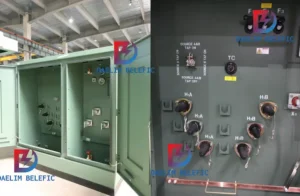
How to Choose Pad Mounted Transformer?
Table of Contents Selecting the right pad-mounted transformer requires careful consideration of several critical
ELECTRIC, WITH AN EDGE
Transformers have been utilized in power plants since the beginning of alternating-current production a century ago. While transformers operate on the same principles, there are variances between them. This article is an extensive guide on 40 MVA transformers.
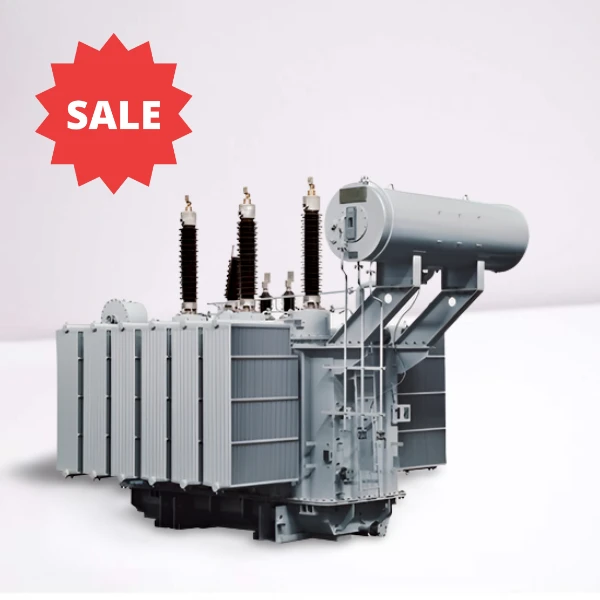
Brought to you by DAELIM, one of the leading manufacturers of electronic equipment
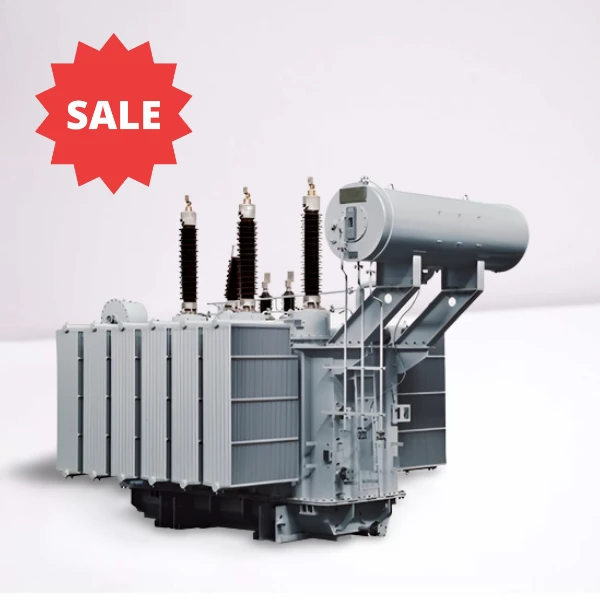
A 40MVA transformer can produce a maximum of 40MVA of perceived power for an extended time without overheating.
Because the manufacturer has no idea what kind of loads you have, transformer ratings are always in MVA. Ratings are always based on the thermal withstand capability of the windings.
Voltage regulation by load ratio, high dependability, an advanced degree of performance, and suitable economic indicators
The core joints are stepped in three steps to reduce losses and noise, and the surface of the core is covered with cured paint.
The winding has a unique construction and a well-designed oil route. Its newly developed insulating structure contributes to its mechanical robustness and capacity to tolerate short circuits.
There are two oil tanks: enclosed and equipped with an oil conservator. Other features include:
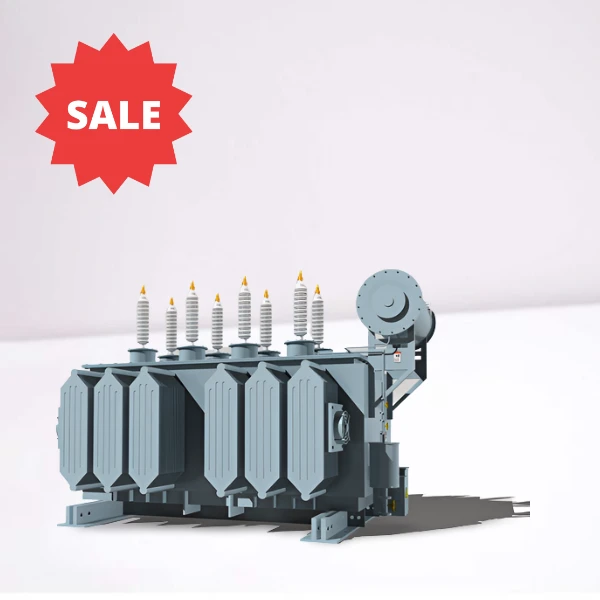
The core is built of a high-permeable grain-oriented high-quality cold-rolled silicon sheet, cut on a sophisticated Germany Geoge GmbH automated shear line and cut burrs calibrated to 0.002mm.
To make the three-leg, two-yoke core, the layered core sheets are intrinsically pressed and glued with epoxy resin, resulting in a durable and flat integral one with excellent verticality precision. It successfully improves performance without a load while reducing noise.
The bottom iron yoke and the lower portion of the oil tank are fastened with counter-pressure bolts, and the upper iron yoke is secured with an epoxy resin-impregnated fiberglass band.
Three points on the upper iron yoke and the top area of the oil tank are fixed. As a result, the body within the oil tank can withstand vibrations without shifting during transit.
Meanwhile, the diverging effect of the grating wall helps to decrease noise. The secondary circuit’s routing troughs and control boxes are made of stainless steel, providing the transformer with a clean and appealing look.
Generally, the transformer is entirely made of stainless steel for a simple and appealing aesthetic. All sealing structures are meticulously machined from high-grade sealing material.
On the tank’s edge, there are two sealing grooves. The outside sealing material shades and protects the inner seal from damage, improving its lifespan and reliability.
Similarly rated transformers, like 40 MVA transformers, have several benefits over traditional transformers. They’re lightweight, generate minimal heat, and require minimal upkeep. It’s built to sustain large current loads.
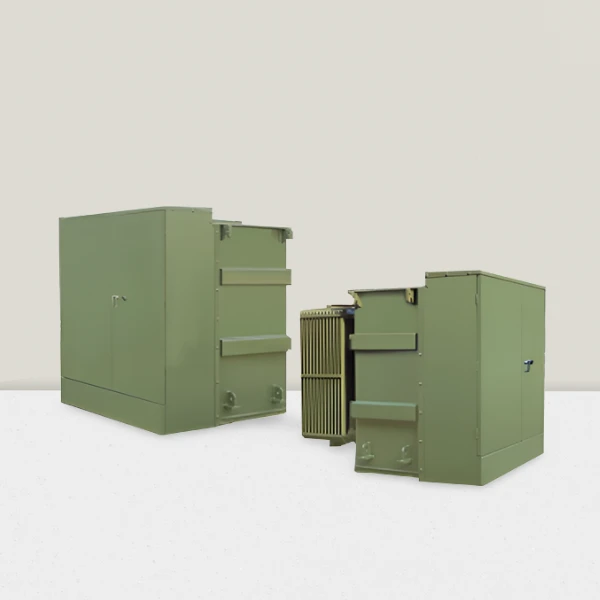
Three-phase transformers are used to adjust the voltages of three-phase electrical systems. Different combinations exist, including star-star, star-delta, delta-delta, and delta-star. There are various types of 40 MVA transformers, and a three-phase transformer is one of 4.
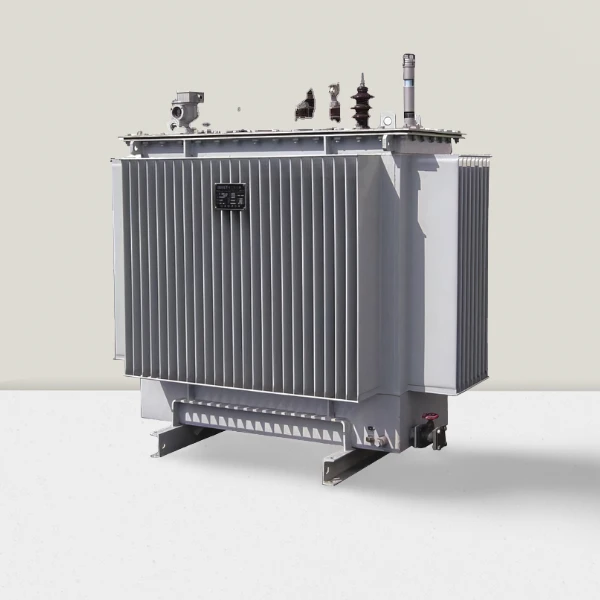
An oil-immersed transformer, also known as an oil-filled transformer, is a voltage transformation device that uses oil cooling to keep the transformer cool.
The advantages of an oil-immersed transformer are high mechanical durability, no insulating limitations, environmental safety, reduced fire danger, and ease of maintenance.
An oil transformer plays an essential function in the transmission system. Other advantages include:
1. An oil transformer typically costs 1.5 to 2 times less than a dry transformer for the same capacity.
2. The epoxy resin used in dry transformers has a worse thermal transfer efficiency than mineral oil.
3. Because the heat dissipation of the dry transformer is lower than that of the oil transformer, its capacity is generally limited to power distribution from the intermediate station to the end-consumption site.
4. Oil transformers are also more adaptable to the grid system (including transmission and distribution transformers).
5. Dry-type transformers are normally suited for voltages below 35 kV, but oil-immersed transformers can handle any voltage.
6. The temperature monitoring of the dry transformer is dependent on the temperature sensor located inside the machine’s body. So, the acquired temperature is the temperature of a specific region, not the precise mean temperature.
Its insulating oil in transformers transfers heat quite evenly. The monitor’s temperature may be used to calculate the average temperature.
Crypto farms are projected to require a significant amount of power for mining. As a result, a high-power transformer, such as a 40 MVA transformer, is required.
Large buildings often employ these transformers since their standards fulfill the requirements.
Because the building is so enormous, the 4000 kVA transformer is rather expensive. However, this may be overkill if you do not have many Bitcoin mining power systems on your crypto farm.
When detecting high-power current transformer outputs, a voltage transformer and current transformer are typically used (current transformer).
The VT and CT ratios are the proportions of primary and secondary rated currents and voltages. Additionally, the CT ratio is 100 if the rated primary current/rated secondary current is 500 A/5 A. The same is true for Vermont. Each ratio is 1 if no VT or CT is used.
The phenomenon that causes a sheet of magnetic steel to stretch when magnetized creates transformer noise. When the magnetization is removed, it returns to its original state.
Magnetostriction is the scientific term for this occurrence. An alternating current and voltage magnetically excite a transformer, causing it to stretch and compress twice throughout a full cycle of magnetism.
Because the magnetization of each location on the sheet differs, the expansion and contraction are not consistent. A transformer core comprises numerous special steel sheets to decrease losses and mitigate the heating impact.
Impedance is a percentage measurement of a transformer’s current-limiting feature. When the transformer output is shorted, the per-unit impedance represents the proportion of the rated voltage necessary to deliver full load current. The voltage required to achieve full load current is lower than the impedance.
A 40 MVA transformer can provide up to 40MVA of perceived power without overheating for an extended time.
Because the manufacturer has no idea what kind of load you have, transformer ratings are normally given in MVA. Ratings are always based on the thermal withstand capabilities of the windings.
High dependability, sophisticated performance, and acceptable economic indicators regulate voltage depending on the load ratio.
Additionally, the core joints are stepped into three levels to reduce losses and noise, and the surface of the core is covered with dried paint.
The winding has a unique design and a well-thought-out oil route. Its newly constructed insulating structure increases its mechanical toughness and short-circuits resistance.
Download Resource

Table of Contents Selecting the right pad-mounted transformer requires careful consideration of several critical
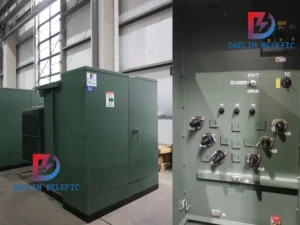
The primary function of the pad mounted transformer is to serve as a critical distribution
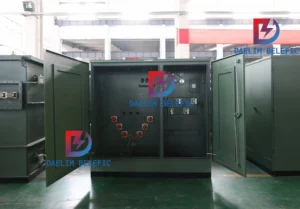
A pad mounted transformer operates through electromagnetic induction, serving as a crucial distribution component that
After filling in the contact information, you can download the PDF.